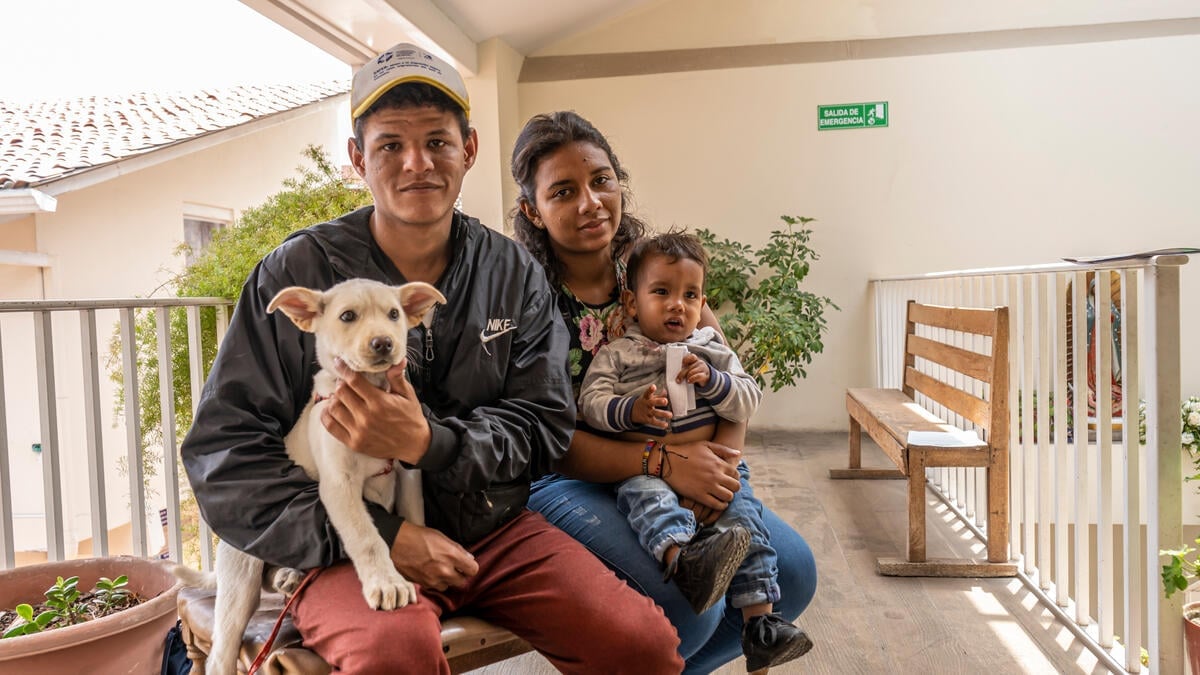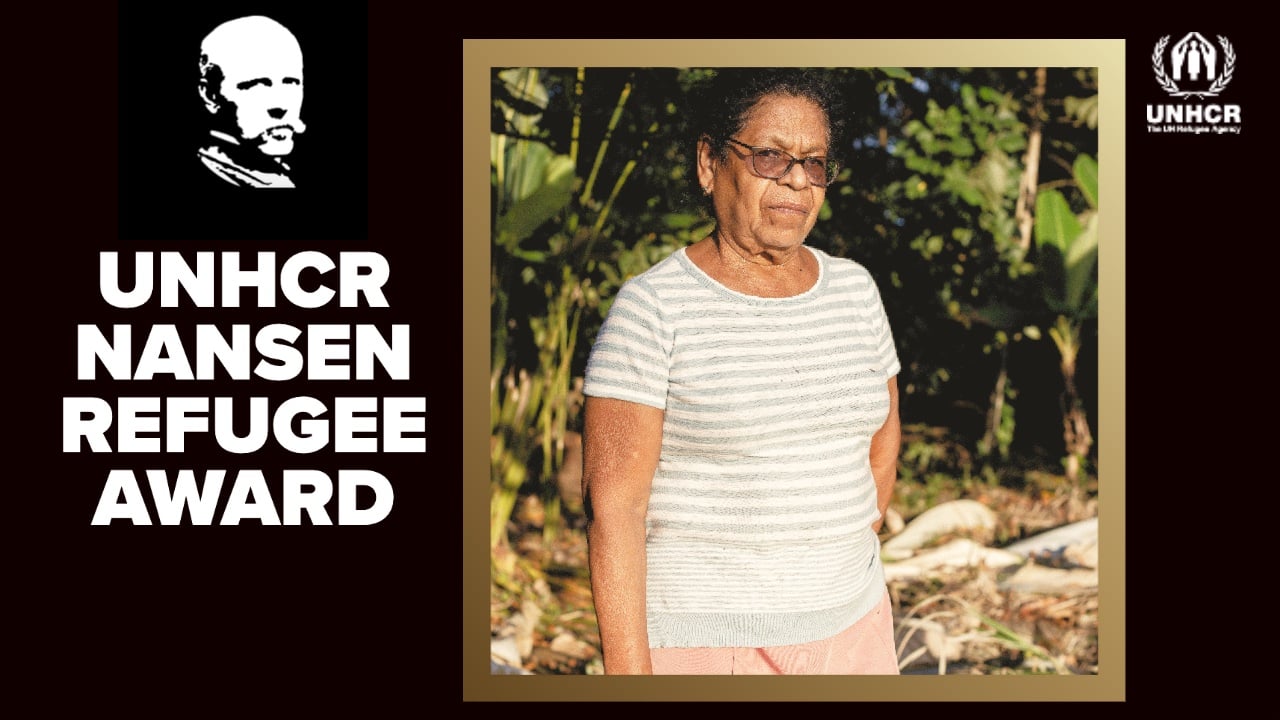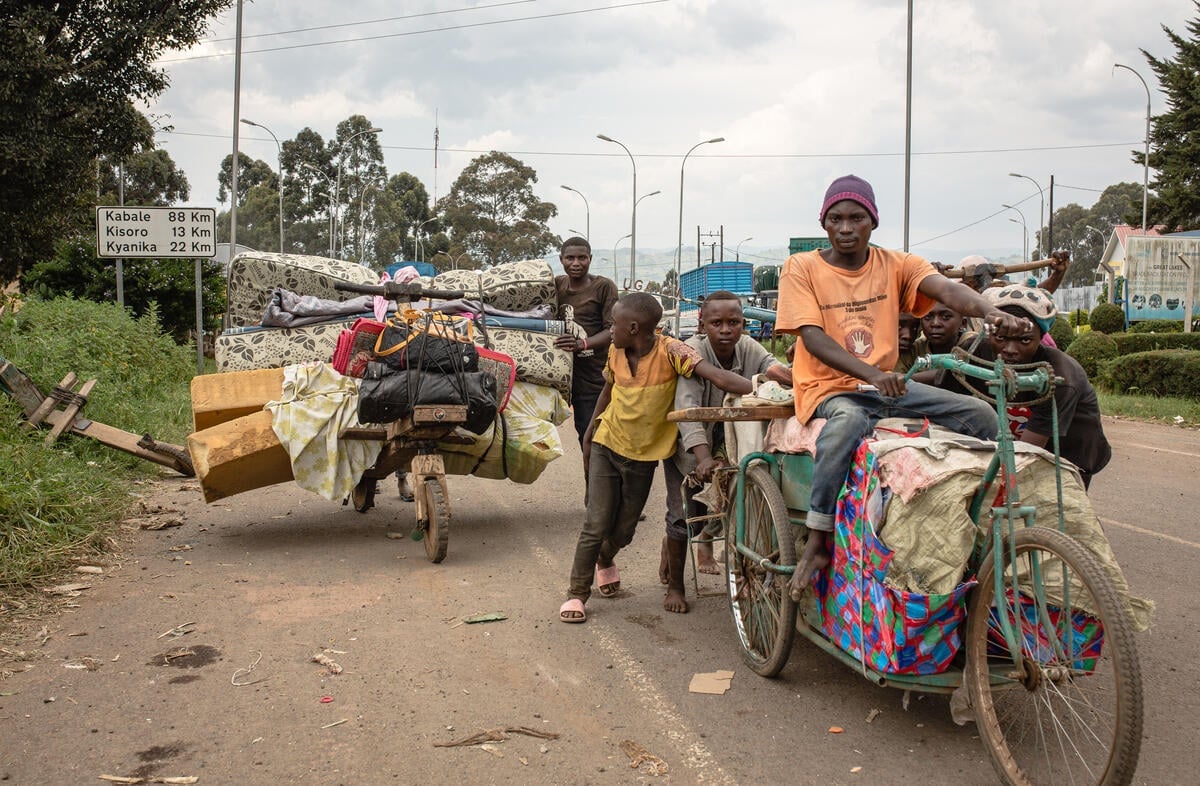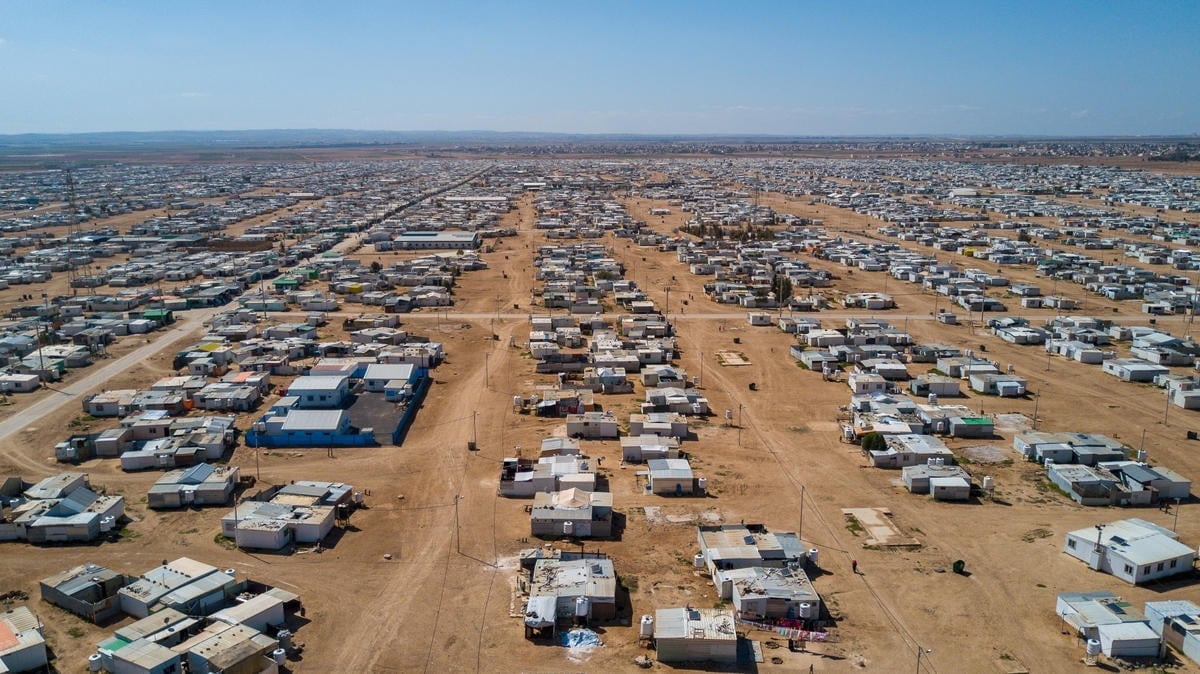Study finds refugee businesses play vital role in local economy
Study finds refugee businesses play vital role in local economy

Kakuma refugee camp, Kenya – Esperanza Tabisha, a refugee fashion designer from the Democratic Republic of the Congo, is arranging her latest designs in her small shop made of corrugated iron in Kakuma refugee camp, north-western Kenya.
Two customers arrive to take a look at what is on sale. One is a refugee, another works for a local non-governmental organization. Most of the merchandise is made of kitenge, a thick, shiny fabric, traditionally dyed in bright colours.
The women look impressed. One settles on a dress for 1,800 Kenya shillings (US$18). Another orders a customized long skirt and top which will cost 2,000 Kenya shillings (US$20). Happy with their purchases, the women leave, and Esperanza continues organizing her stock.
“There’s no better feeling than having a happy client.”
The 27-year-old businesswoman is just one of thousands of refugee entrepreneurs and business owners living in Kakuma and its neighbouring town, which have a combined population of nearly 250,000, both refugees and local people.
Esperanza started her small fashion label, Esperanza Fashion & Design, in 2011 with just 22,000 Kenya shillings (US$220), after fleeing violence in the DRC’s North Kivu province and arriving in Kenya.
She wanted to continue in fashion design, despite finding herself a refugee in Kenya. Her unique designs soon found a niche in the thriving fashion industry in Kakuma camp, attracting customers not just from the refugee community, but among local people, too. She earns about 2,000 Kenyan shillings (US$20) per month selling her designs.
“I love my work,” she says. “There’s no better feeling than having a happy client.”
Using the income she has generated, Esperanza has invested in her business, buying a new sewing machine, a charcoal iron for pressing clothes and other tools to help develop the quality of her work. Despite running a successful business that supports her and her extended family, Esperanza says there are challenges
“I am really happy with what I am doing,” she says. “I love being a designer and making clothes. But the money I make is only enough to take care of most of my basic needs. For me to expand my business, I require financial assistance which I can repay over time.”
Esperanza supports an innovative study by the International Finance Corporation (IFC) and UNHCR, the UN Refugee Agency, published on 4 May, which concludes that many refugees are not just passive recipients of aid, but are involved in economic activity. The report shows there are opportunities for private-sector organizations to do business in the camp and its neighboring town.
The study looks at Kakuma from the perspective of setting up a private business. It finds that there are more than 2,000 businesses and smalls shops in Kakuma, and the area’s economy is worth 6 billion shillings (US$56 million). According to the study, half of household incomes is spent on consumers products, a market worth more than US $26 million per year.
Data was collected on business ownership, consumption levels and access to finance, telecommunications, education and employment. The findings show Kakuma’s economy is thriving and there are opportunities for the private sector to invest in ventures in the refugee and host communities, which promote self-reliance, financial independence and the empowerment of refugees, reducing reliance on humanitarian aid and integrating refugees socially and economically.
“We need to change the mindset that refugees are sitting at the camp, doing nothing but receiving assistance,” says Raouf Mazou, UNHCR representative for Kenya.
“Many of them are, in fact, running businesses and creating jobs for others, and doing other important thing to formalize their enterprises.
“We tend to see the private sector as something sophisticated, coming from outside, but most times, it is built on initiatives of individuals who want to make money using what they know best, like a refugee who bakes bread.”
“I am really happy with what I am doing."
Researchers found more than 2,100 small shops in Kakuma camp, serving a mixed population. Of the refugees surveyed, 12 per cent identified themselves as business owners.
They conclude that its findings are positive considering that most refugees arrive in Kenya with little more than the clothes on their backs. There are also limited rights to move around the country, or own registered businesses or property.
Good internet connectivity in most parts of Kakuma and good mobile phone penetration have opened up opportunities for potential private sector investors, the study says. Approximately 69 per cent of refugees and 85 per cent of the host community have access to mobile phones.
Connectivity has helped Esperanza to expand her business. Customers choose a design from a range that she has posted online.
“The internet, social media, especially Facebook and Instagram, are playing a major role in attracting potential customers to my business, as I advertise there”, she says.
The study found that private sector investment in Kakuma not only allows refugee business owners to support themselves, but also benefits the host community. Refugees often hire local people to work with them and they buy livestock, wood, charcoal, and other commodities from the local community.
“Conflict, violence, and persecution are driving more people from their homes than at any time since World War Two,” says IFC chief executive Philippe Le Houérou.
“Government aid to tackle the challenge is limited. Private sector investment could make an important difference, by creating jobs and opportunities for refugees. But investors often lack the critical information they need to venture into these markets. This study is a key first step to boost private investment into an untapped market.”
The IFC and UNHCR hope the study will raise awareness of Kakuma as a market opportunity in private sector areas such as telecommunications, health, education, housing and power.
The joint report concludes that attracting the private sector and social enterprises to the Kakuma area and supporting local and refugee entrepreneurs has the potential to expand job opportunities, improve services, provide more choice, and reduce prices for all.
“In turn, this could enhance the self-reliance of both communities and their socioeconomic integration, while contributing to the development of the hosting region. This is in the spirit of the global agenda of the Comprehensive Refugee Response Framework,” the report states.
It calls for three key objectives would need to be reached:
• Attract private businesses, including commercial firms and social enterprises, to enter the market and provide opportunities to scale up operations of enterprises already present in the area
• Develop refugee and host communities’ entrepreneurship potential, with a focus on young people and women, by supporting their businesses to grow and providing vocational skills training, business development services, and microfinance opportunities
• Support policy dialogue and advocacy efforts focused on creating a more conducive business environment and attracting private sector companies to the area.
















